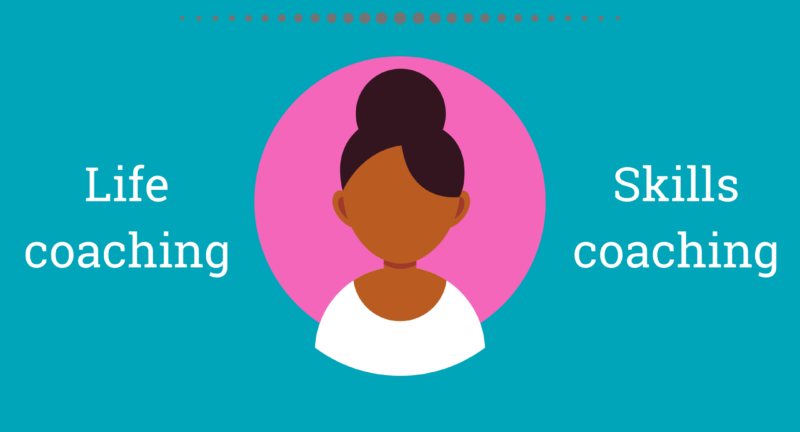
It’s Time for College Applications: Tips for Teens with ADHD
Applying to college is stressful for all teens, but ADHD can make the application process even more stressful.
Here at Next Step 4 ADHD, we’re committed to helping manage your teen’s ADHD so s/he can thrive in all of his/her endeavors — including applying for college. In this article, we’ll cover practical strategies for making the most of your college application process.
1. Start the College Application Process Early
Some universities had early deadlines that quickly approaching (November), but there are still plenty of colleges still accepting applications. Another wave of deadlines isn’t until January, which means now is one of the busiest college application seasons for your teen.
Most colleges’ deadlines fall between November and February. The deadline for incoming freshmen at the University of Louisville is as late as February 15. If your teen is interested in a particular school, be sure to write down all deadlines on a family calendar.
You can find a list of deadlines for the top 50 colleges and universities here. Be sure to confirm dates on the college website too.
2. Create a Top List of Colleges

Even though it’s college application season, you don’t need to apply to every school. Instead of randomly applying, create a well-curated list of six to 12 universities or colleges. Organize your list in terms of which ones have the earliest deadlines to make sure those are taken care of first.
Things to consider when placing a college or university on your college application list.
ACCOMMODATIONS
Tip: You may find that talking with your teen and his/her IEP team to determine which of your child’s accommodations were most helpful throughout high school. While there are no IEPs or 504 plans in college, your child is still protected under Section 504 Of The Rehabilitation Act. The Attention Deficient Disorder Association suggests that college students with ADHD advocate for their own accommodations such as extended time for tests, permission to record lectures, or written instructions. (You can read more examples here.)
To see what kind of ADHD support is at each school, contact the school’s office of disability to learn more about what support (including ADHD support groups) might be on campus.
Take all of this into account when creating your list of schools.
GRADE REQUIREMENTS
Each school will have their own requirements:
- Minimum GPA
- ACT scores
- SAT scores
If your child’s grades or scores don’t meet any of the admission requirements, don’t put the school on the list — as tempting as it may be.
MAJORS AND OTHER AREAS OF STUDY
Another important element of choosing the right school: finding a school that caters to your child’s interests. Consider your teen’s academic strengths and weaknesses. Teens with ADHD tend to excel more in courses where the subject matter interests them. To pinpoint a potential major or find a school that offers this major, ask the following questions:
- What subjects do I love the most?
- What are my strengths?
- What are my weaknesses?
- Are sports an important part of my experience on campus?
- What other extracurriculars do I want to particulate in? (Drama club, etc)
- Do I want to stay closer to home? Is distance an issue?
- Do I prefer to commute to school?
- What role do my finances play in this decision? (In-state tuition, scholarships, etc)
- Do I already have a post-grad career in mind?
All of these answers can help shape your teen’s list of schools.
3. Time to Apply!
Once you’ve got your list, your teen needs to gather any and all necessary items. Depending on the school the list may vary, but most schools want to see:
- High school transcripts
- SAT and/or ACT scores
- College essay
- Letters of recommendation
- List of extracurricular activities, sports, music, or other talents
- Evidence of community service
Over 900 colleges accept the Common Application (you can find it here), which can save time in the college application process. However, not all schools accept the Common App.
When your teen sits down to apply, keep these tips in mind:
- Work in an uncluttered, distraction-free space
- Work on a full belly
- Get a good night of sleep before working on applications
- Avoid rushing; make time to go back and proofread everything before submitting
- Following the writing process for the essay: brainstorm, free write, outline, draft, edit, revise, proofread
While a college application must be 100% original and completely written by the applicant, you can boost your odds of delivering a top-notch essay by getting (the right kind of ) help. Consider brainstorming ideas with an English teacher at your school and getting feedback from your teacher. And as always, check your work with grammar and spelling checking tools. You can also get help via books. College Essay Essentials is a stress-free roadmap for crafting college essays, and it’s written by a college counselor. (You can find it on Amazon or your local library.)
Once an application is finally submitted, cross it off on the first list that you and your teen made.
Getting Your Teen’s ADHD Under Control
Even with these tips and strategies, unmanaged ADHD can make the process challenging. If your teen is struggling to control his or her ADHD symptoms, we can help. Our multidisciplinary team is experienced in diagnosing and treating ADHD. Whether your teen needs therapy, medication management, or a combination of both, we can help your teen thrive.
To make an appointment or to learn more, call us at 502-907-5908. You can also request an appointment here.
Related Posts
What Is Growth Mindset?
“In a growth mindset, people believe that their most basic abilities can be...
ADHD Coaching: Everything You Need to Know
An ADHD coach is a coach specifically trained to help adults, teens, and children...


